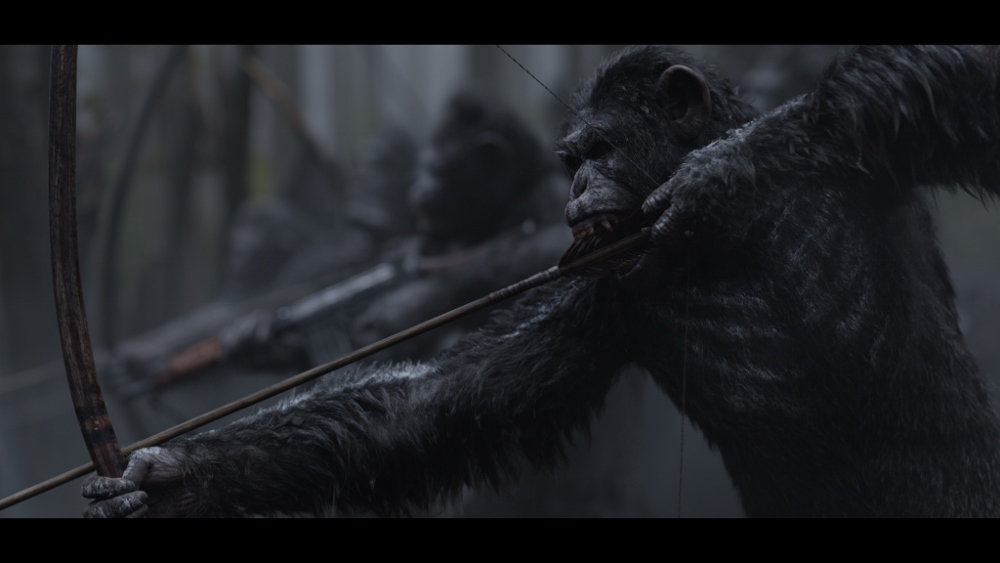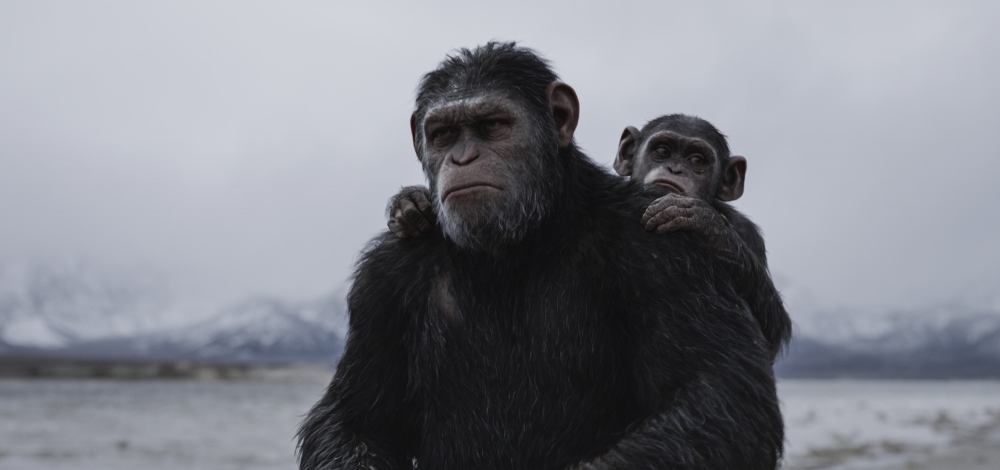
Riveting and suspenseful, War for the Planet of the Apes provides an epic closure to the reboot trilogy, an adventure at once thrilling and moving. Co-written and directed by Matt Reeves, the film follows Rise of the Planet of the Apes (2011) directed by Rupert Wyatt, and Dawn of the Planet of the Apes (2014), directed by Reeves. While following the reboot series is a rewarding experience, as the films do not merely continue the story, but deepen and develop, even those who have not seen the previous films can jump right into this third (and possibly best) film. Reeves has created a fully-realized and plausible world, in which characters and their actions make sense, and everything fits. Reminiscent of classic war-action films such as Apocalypse Now and The Great Escape, War for the Planet of the Apes offers character driven plot and moral dilemmas, as well as thrilling action sequences. Yet the overwhelming power and resonance of the film is in great part due to Andy Serkis’s performance as Caesar, the leader of the apes. Serkis is mesmerizing.

Serkis has long been established as an innovative and masterful interpreter of character. Without Serkis, there would be no Gollum as we know him. He embodies the role entirely, his expressive body language creating a character who is not human, yet emotionally and intellectually complex, and profoundly moving. Serkis brings a rich vocabulary of nuanced gesture and expression to his motion-capture performance, which is then given a make-over into ape features by the excellent artists and technicians who worked on this film. Leader of the apes, Caesar acts out of moral conviction, protecting their right to freedom. This is a war that has been forced on the apes, who wish only to defend themselves and live in peace. As he says at the outset of the film: “I did not start this war.” Yet as events unfold, Caesar is plunged into a moral dilemma, and must confront the validity of his own decisions.

In contrast to Caesar is The Colonel, portrayed to insane perfection by Woody Harrelson. Evoking thoughts of Marlon Brando’s Kurtz in Apocalypse Now, The Colonel is an outsider within his own human society, yet thoroughly convinced of his truths, and committed to seeing them through to the bitter end. Exploring the effects of war, and the desire for vengeance, the film evokes the memory of Koba, with sinister vignettes of Toby Kebbell.
Invigorating the saga, as well as contributing rich detail to the fictional world, are two new characters. Steve Zahn brings humor and a touching sweetness to his performance as Bad Ape, a former resident of the zoo, who escaped when it all went down. Living in isolation, his speech is limited, drawing on what he heard in captivity, “bad ape” is one of his few phrases. Amiah Miller plays the girl found by Caesar and taken under the protection of Maurice, as they search for The Colonel. Continuing the reboot series tradition of referencing characters from the original 1968 Planet of the Apes film, Maurice names her Nova, which was the name of the mute human mate of George Taylor (Charlton Heston), played by Linda Harrison.
The Apes series – original and reboot – touches on two essential human preoccupations: our fascination with our origins and our fear-driven obsession with scenarios of human extinction. In this sense, it is striking to note the shift in perspective from 1968’s Planet of the Apes to the current reboot series, as a reflection of the way we humans currently view ourselves and our place in the world. If in the original there was a combination of conflict and moral ambiguity, in which empathy for Taylor and the captive humans was merged with an appreciation for Zira and Cornelius, in War for the Planet of the Apes there is no doubt: we are the bad guys.





